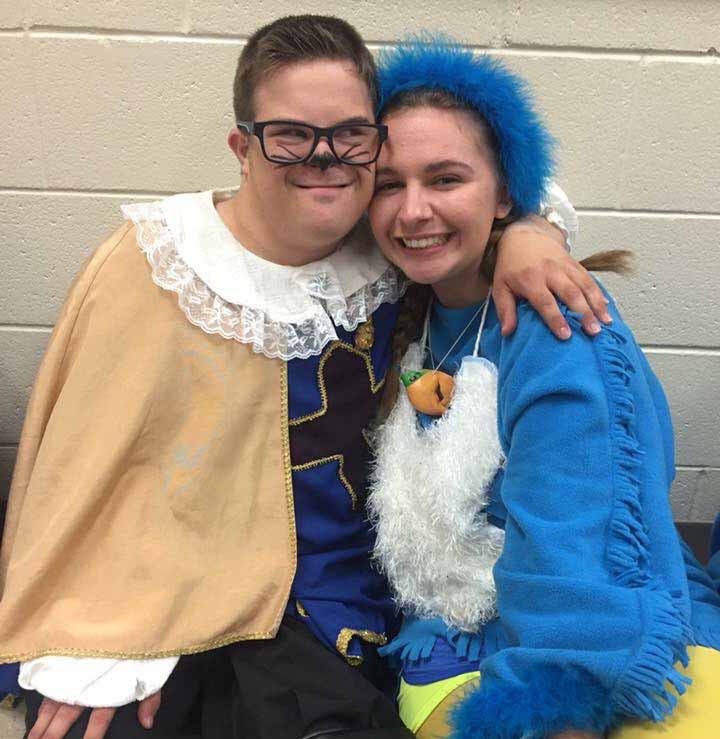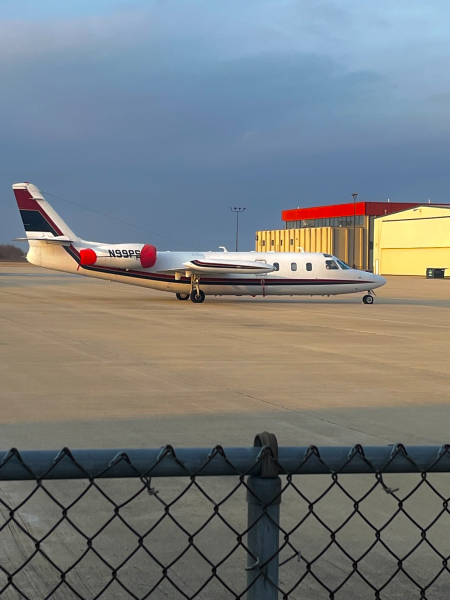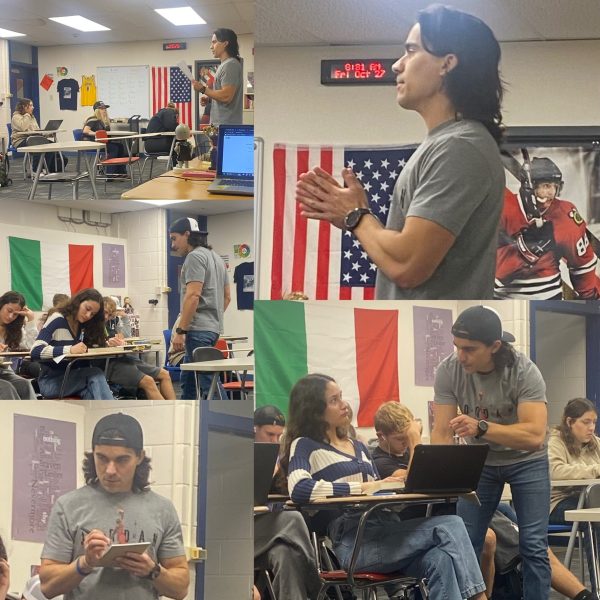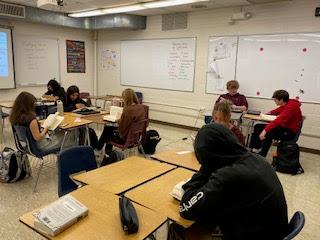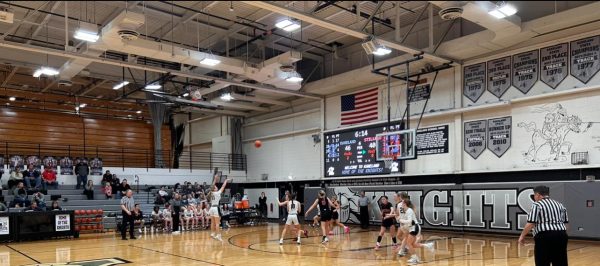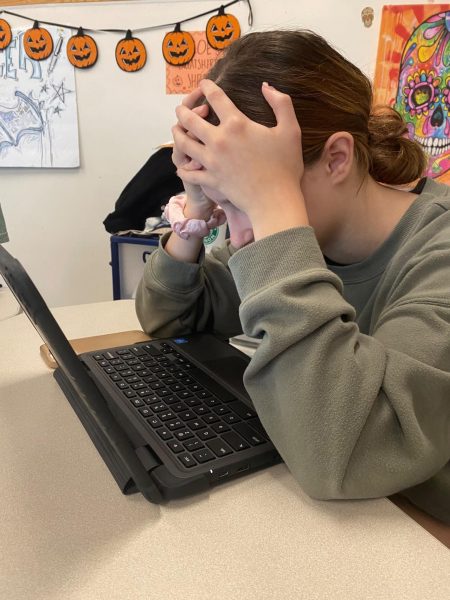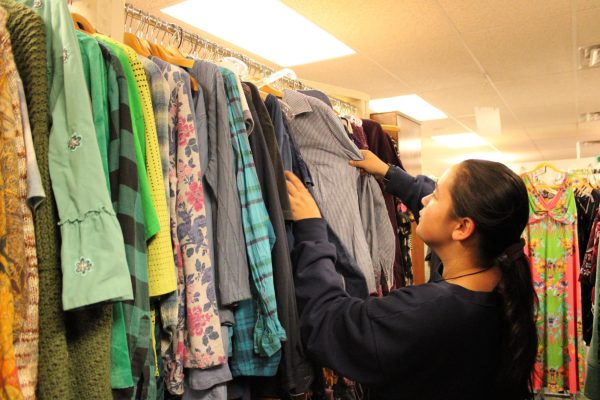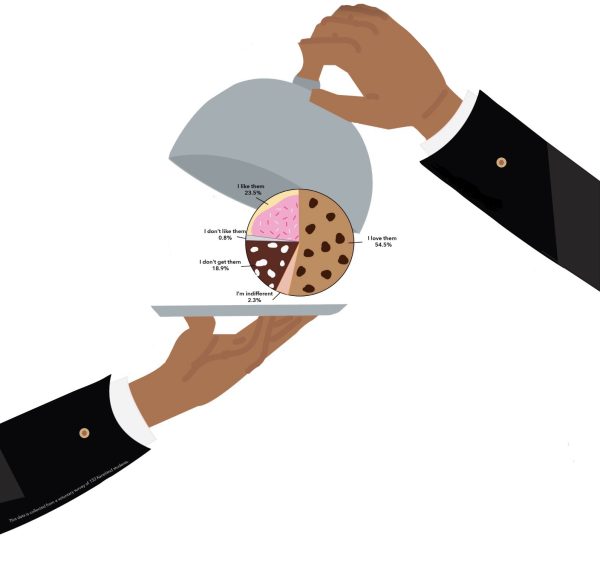Waddle for disabilities
December 8, 2016
Making someone the center of attention isn’t always the first thing on everyone’s mind. Senior Cassidy Garland loves to do just that: she makes those with disabilities shine bright, through the Penguin Project.
The Penguin Project is a community theater group aimed towards children and young adults with disabilities, known as the artist. The goal is for the artists to reach their full potential with the assistance of a peer mentor. There are no auditions or role cuts. With Penguin Project, everyone has a part.
“With Penguin Project, everybody has a role no matter what, the director emphasizes that every roll is important and it makes the artist feel good about themselves,” Garland said.
Some might be wondering why the Penguin Project is called the Penguin Project. There is certainly a sensible explanation for it.
“It’s called the Penguin Project because penguins themselves have a “disability” which is not being able to fly, but that doesn’t stop them from anything. Just like our artists, they have many obstacles to overcome, but they don’t let their unique differences interfere with their lives,” Garland said.
Garland and her older brother Drew, who was born with Down Syndrome, have been participating in the Penguin Project for 4 years now. Cassidy as a mentor and Drew as an artist, have performed in The Little Mermaid, Aladdin, Fiddler on the roof and Shrek.
The artists and mentors are not just memorizing lines and performing on stage, but they’re forming bonds and relationships with one another.
“You make so many awesome friendships with everybody and it’s like a big family,” Garland said.
Getting involved, doesn’t take much. All you have to do is show up to an informational meeting. which is held in April, and then you begin showing up for practices. The informational meeting along with practices are held at First United Methodist church in Dekalb.
“For the first few weeks the mentors are paired with different artists for each practice and after awhile you form a connection with someone and they end up being your partner for the rest of that show. Together you learn new dances, memorize lines and most importantly have fun!” Garland said.
Qualifications for the Penguin Project are quite simple. To be a mentor, you must be between the ages of 10-22. To qualify to be an artist, you must have a disability of any kind and also be between the ages of 10-22. Along with that, there is no cost to be apart of the Penguin Project.
“When it comes around to show time, you are sometimes asked to bring small costume pieces like a pair of pants and a shirt. Overall, the cost is either nothing or very minimal,” Garland said.
Performances typically are around the beginning of September, starting on a Thursday and ending on a Sunday. The further into the production, the bigger the commitment becomes and the longer practices become.
“Practices start out as once a week and as the months go we work our way up to every day of the week. Practices from May to mid August are 6:15-8:00 and once we get closer to our performance, it goes from 6:00-10:00” Garland said
The mentors participating in the shows can possibly learn a thing or two from the artists and their disabilities. By making the artist feel special about themselves, that can make the mentor feel as though they have accomplished something. It can be a life changing experience.
“It’s opened up my eyes to see everyone for their abilities, not their disabilities,” Garland said..


